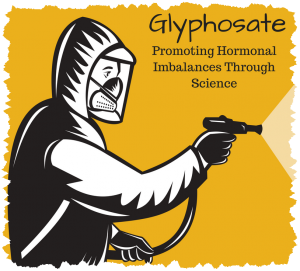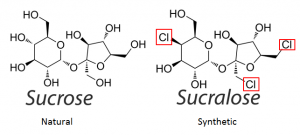Toxicity
Symptoms of Hormonal Imbalance Devastatingly Linked to Toxins You Are Eating
Symptoms of hormonal imbalance are more prevalent than ever before. Young ladies with PMS, women struggling through the mid-life transition of menopause, young men with no sex drive and older men with no motivation. These are all symptoms of hormonal imbalance. This condition is so common that clinics are popping up everywhere claiming to help balance hormones.
Why is there such a need for doctors to help re-balance hormones? Wait! Before you answer that question, you might want to ask, “Am I at risk of developing symptoms of hormonal imbalance?” With one deafening word I can answer this question. YES! You are going to develop symptoms. Most of the reason is because of the foods you are choosing. Once you learn what foods are causing your hormonal imbalances, visiting a doctor to help balance your hormones won’t be as necessary.
Symptoms of Hormonal Imbalance
Symptoms of hormonal imbalance have a funny way of sneaking up on you. Your friends and coworkers start avoiding you because you seem more edgy all the time. Your spouse is noticing that you cannot remember things as well, and if you are honest with yourself, you notice it also. Your desire for the opposite sex is as present as a snow storm in the middle of the summer. Before you know it, you are in the full troughs of hormonal imbalance with no idea how you got there. The days of adequate energy and stable moods are nothing more than a memory. Does this sound like you? If it does, you are not alone. And the thought that it seemed to hit you all of a sudden . . . well it turns out there is some legitimacy to that. More on that to come.
What’s on Your Fork is Causing Your Hormonal Imbalances
It might not seem so obvious that the reason your hormones are out of balance could be because of the food choices you are making. Food is directly related to balancing hormones. In short, if you eat a Paleo Diet, full of vegetables and fruits and some nuts and lean meats, you are far less likely to have symptoms of hormonal imbalances. However, if you are eating foods that are refined, boxed, and look nothing like what you find in the produce section of the grocery store or at the local farmer’s market, it is almost certain that you are going to be labeled “the person that should get their hormones checked”. Unfortunately, if you are this person, I am going to be the barer of bad news and tell you that it is even worse.
The Wolf in Sheep’s Clothing
You know the story of the wolf in sheep’s clothing. The wolf pretends to be the sheep and part of the natural flock, only to surprise the flock by devastatingly attacking the sheep. Seems pretty gruesome, right. The truth is that it is not that different than the weed killer (herbicide) glyphosate that can be found in your foods. It is supposed to help grow better crops with no effect on humans. Supposedly! Turns out that assumption was wrong and it directly affects your hormones. In men, it can increase estrogen. In women, it can lead to an imbalance of the two primary female hormones, estrogen and progesterone. Simply, it is going to accelerate you toward the label of the “crazy hormone” person.
Glyphosate truly is the wolf in sheep’s clothing. It continues to be pushed as a safe product, even for routine use around your home. Excellent! Now you can get poisoned from the eating foods that are part of the standard American diet as well as taking care of your lawn. Turns out, ingestion in only one way that you can disrupt your hormones with glyphosate. It can also be inhaled. As a water soluble compound, it can easily blend in with your body tissues and become a real problem with hormone disruption being only the tip of the iceberg. Think I am exaggerating. Ask all the farmers and their families in central America that developed Chronic Kidney Disease of unknown origin what their opinion is. My guess is that the symptoms of hormonal imbalance are the least of the concerns they will tell you to worry about.
Symptoms of Hormonal Imbalance from Out of Nowhere
You will recall earlier that I shared how symptoms of hormonal imbalance can seem to creep in without warning. Well turns out, in humans, that is the presentation of glyphosate. It continues to accumulate and cause undetectable levels of problems. However, at some point, the last drop of water is going to fall into the bucket causing it to begin to spill over. This is the same story for glyphosate. It continues to accumulate until at some point your body cannot clear it out fast enough. When this happens, here come the symptoms, including hormonal imbalances.
What Can You Do
Not all is hopeless. First and foremost, you need to acknowledge that glyphosate is a problem. There is a growing body of evidence casting a larger and larger shadow on glyphosate, and therefore the “foods” that are sprayed with glyphosate. It is rather logical to see why the legislation that was passed allowing for food manufactures to circumvent the necessity to label GMO foods was called the “Dark Act”. Once you accept this truth, you have taken the first step. Unfortunately, accepting that the most common foods in the standard American diet are the problem is not easy. However, before you question the legitimacy of the connection between these foods being sprayed with glyphosate and symptoms of hormone imbalances, you should ask yourself why all chronic diseases continue to be on the rise while our food supply drifts further and further away from what is our ideal diet.
If you are not sure what your ideal diet should be, I have a resource that is going to make transitioning back to the foods that are going to help resolve your hormonal symptoms much easier. If you are a man and want to “be a man” again, or ladies, if you have the desire to return to your youthful, vibrant self again, you have to grab your copy of the Definitive Paleo Immersion Shopping Guide.
Artificial Sweeteners Can Contribute to Diabetes . . . Through the Gut
It is no surprise to anyone that diabetes is on the rise. Yet you might be surprised to find out that one of the reasons is associated with something often recommended to those that are diabetic, or even those that just wish not to gain weight. What I am referring to are artificial sweeteners. Artificial sweeteners are often incorporated into foods as a safe option to natural sugars with the premise being that the use of these will not raise blood glucose levels and worsen the condition of diabetes. Basically they are being used as a safer alternative to natural sugars. The truth is they are not.
The Source of the Problem
Artificial Sweeteners have been used for several years and marked as options that those suffering from blood sugar problems can safely use to reduce elevations in glucose. The theory is that since the artificial sweetener does not contain calories therefore it should not cause a spike in glucose. What the artificial sweetener can do is promote a stimulus to our nervous system that registers as sweet. The assumption was that the use of an artificial sweetener would not allow blood sugar levels to increase since it did not contain calories, while at the same time providing the sweet taste often sought after.
Today, we recognize many of these artificial sweeteners by their trade names. The most common examples include Equal, Sweet’N Low, acesulfame potassium and Splenda (sucralose). Among these, Splenda is probably the most popular. This should not be of surprise since it is 600 times sweeter than table sugar (Food Chem Toxicol. 2010 Nov;48(11):3067-72.). Splenda has been given the label of safe, but like some of its counterparts, the testing used to draw the conclusion that artificial sweeteners are safe is questionable and was likely approved through the FDA without proper testing (Int J Occup Environ Health. 2010 Jan-Mar;16(1):89-96.). It appears that where many of these studies fail is that they are assessing acute dosages. There is virtually no acute toxicity that is observed. However, the accumulated use of artificial sweeteners over time tells a much different story.
The Real Effects of Artificial Sweeteners
As with most things that are introduced into the body that are man-made, artificial sweeteners are not safe and have been shown to have ill effects on human health. Ironically, diabetes, a condition thought to be aided by the use of artificial sweeteners, is actually made worse. The mechanism has been defined through the gastrointestinal tract. Again, this emphasizes the point that if the gut is not healthy, disease is on the horizon. As it relates to the use of artificial sweeteners, they alter the growth of bacteria in our guts. This altered gut environment is created when the most beneficial strains of our probiotics are decreased, leading to either a lack of diversity in our colons or the overgrowth of strains that are least beneficial to the bowels, or even harmful. With the establishment of this environment, metabolic conditions such as insulin resistance and its progressed form, diabetes, are made worse. In short glucose intolerance develops through unfavorable changes in the gut microorganism balance that are promoted by the use of artificial sweeteners (Nature. 2014 Oct 9;514(7521):181-6.)
While some may argue that artificial sweeteners do not have acute toxic effects and that they are a better option for those that wish to control or avoid diabetes, new evidence suggests otherwise. Numerous studies now show that the results of routine artificial sweetener consumption do indeed have negative effects on balancing blood glucose, though the effects are indirect by way of changes to the balance of microorganisms in the gut. So while an immediate effect on blood glucose levels may not be seen, what is seen long term is a worsening of the metabolic state. Moreover, the change in gut composition that leads to impaired glucose tolerance is also a well-established culprit in many other chronic diseases. It is blatantly a contributor to a slow, toxic death.
References for the negative effects of artificial sweeteners on the gut:
Cell Metab. 2014 Nov 4;20(5):701-3. A bitter aftertaste: unintended effects of artificial sweeteners on the gut microbiome.
Nat Rev Endocrinol. 2014 Nov;10(11):637. Gut microbiota: not so sweet–artificial sweeteners can cause glucose intolerance by affecting the gut microbiota.
Nature. 2014 Oct 9;514(7521):176-7.Health: The weighty costs of non-caloric sweeteners.




